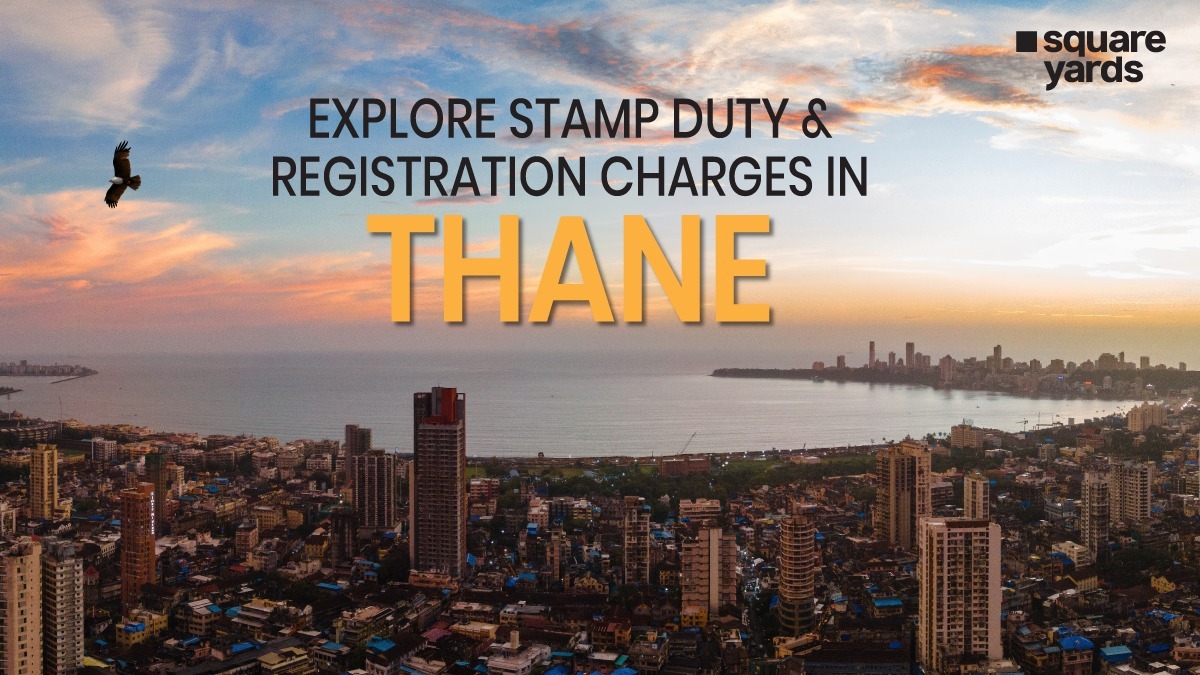Are you a Non-Resident Indian (NRI)? If so, then the Double Taxation Avoidance Agreement (DTAA) could be of great help to you. Any NRI who works in a different country than India has to pay double taxes on the income they earn.
However, double taxation can be avoided if India and their country of residence have this double tax avoidance agreement with each other. Currently, India has this agreement with 80 different countries in the world.
If you want to crack open the Double Taxation Avoidance Agreement concept, then continue reading this blog!
What is Double Taxation Avoidance Agreement?
The Double Tax Avoidance Agreement, abbreviated as DTAA, is a tax alliance that two or more countries sign with the mutual aim of helping taxpayers to avoid paying double taxes on the same income.
A DTAA applies to individuals who earn income in a different nation but are citizens of India. The name DTAA itself explains the purpose of the agreement.
Double Taxation Avoidance Agreement can be comprehensive, confining to all income sources or restricted to specific segments, which means taxing income from shipping, air transport, inheritance, etc.
Currently, India has a Double Taxation Avoidance Agreement with more than 80 countries. Plus, the country plans to sign more such treaties with other countries in the coming years.
India has a comprehensive agreement with countries include Canada, Australia, the United Kingdom, the United States of America, Germany, the United Arab Emirates, Mauritius, etc.
Earlier, there was an imbalance in tax collection on the global income of NRIs, and that’s where the need for DTAA arose. If individuals wish to conduct business in a foreign country, they may pay taxes for both countries, i.e. the country where they hold citizenship and the other where they earn.
For example, suppose you are moving to Australia from India and leave income sources like interest from deposits in this country. In that case, you will have to pay interest to both India and the other country of your current residence according to your consolidated global income.
In such cases, you end up paying tax twice over the same income, where the DTAA helps taxpayers.
DTAA Benefits
The prime intent behind the DTAA is to make a nation appear as an attractive investment destination by offering relief on double taxes.
Such relief is provided by allowing exemption on the income earned in a foreign country from tax in the resident country. Or it can also be done by extending credit to the extent of taxes paid abroad.
For instance, suppose you got an opportunity to move abroad on deputation. You get payments while you are away from home. The income you have earned during this period will attract tax in both countries.
So, what you can do is claim relief during the filing of a tax return for that financial year, given there’s an applicable DTAA.
However, if you are an NRI having investments in India, particular DTAA frameworks could apply to income from such investments. In certain circumstances, DTAAs also offer concessions on tax rates. For example, interest earned on NRI bank deposits lures 30% TDS. Nevertheless, since India has signed DTAA with other countries, tax has been scrapped from 10 to 15 per cent.
In a nutshell, besides not having to pay double taxes on the same income, the DTAA offers the following advantages:
- Lower Withholding Tax, i.e., taxpayers have to pay lower TDS on their interest.
- Tax credits
- Exemption from taxes
- Mitigate the risk of tax evasion for taxpayers in either or both countries between which the unilateral, bilateral, or multilateral DTAA agreement has been signed.
DTAA Rates
Whether its rules or the Double Taxation Avoidance Agreement rates vary from one country to another, it is wholly based on the treaty signed between the parties.
TDS (Tax Deducted on Source) rates on interests earned for most countries are either 10% or 15%. However, these rates vary from 7.50% to 15%. Usually, the TDS applicable would depend on the rates fixed in the DTAA signed between the two countries.
Double Taxation Avoidance Agreement Country List
Currently, India has DTAA agreements with 85 countries in India, and it plans to sign the deal with more in the future.
Below is a list of countries (listed alphabetically) with which India already has a treaty. We have also mentioned the TDS rates on interests for each country in the agreement.
| S No. | Country | TDS Rate |
| 1 | Armenia | 10% |
| 2 | Australia | 15% |
| 3 | Austria | 10% |
| 4 | Bangladesh | 10% |
| 5 | Belarus | 10% |
| 6 | Belgium | 15% |
| 7 | Botswana | 10% |
| 8 | Brazil | 15% |
| 9 | Bulgaria | 15% |
| 10 | Canada | 15% |
| 11 | China | 15% |
| 12 | Cyprus | 10% |
| 13 | Czech Republic | 10% |
| 14 | Denmark | 15% |
| 15 | Egypt | 10% |
| 16 | Estonia | 10% |
| 17 | Ethiopia | 10% |
| 18 | Finland | 10% |
| 19 | France | 10% |
| 20 | Georgia | 10% |
| 21 | Germany | 10% |
| 22 | Greece | As per agreement |
| 23 | Hashemite Kingdom of Jordan | 10% |
| 24 | Hungary | 10% |
| 25 | Iceland | 10% |
| 26 | Indonesia | 10% |
| 27 | Ireland | 10% |
| 28 | Israel | 10% |
| 29 | Italy | 15% |
| 30 | Japan | 10% |
| 31 | Kazakhstan | 10% |
| 32 | Kenya | 15% |
| 33 | South Korea | 15% |
| 34 | Kuwait | 10% |
| 35 | Kyrgyz Republic | 10% |
| 36 | Libya | As per agreement |
| 37 | Lithuania | 10% |
| 38 | Luxembourg | 10% |
| 39 | Malaysia | 10% |
| 40 | Malta | 10% |
| 41 | Mauritius | 7.50-10% |
| 42 | Mongolia | 15% |
| 43 | Montenegro | 10% |
| 44 | Morocco | 10% |
| 45 | Mozambique | 10% |
| 46 | Myanmar | 10% |
| 47 | Namibia | 10% |
| 48 | Nepal | 15% |
| 49 | Netherlands | 10% |
| 50 | New Zealand | 10% |
| 51 | Norway | 15% |
| 52 | Oman | 10% |
| 53 | Philippines | 15% |
| 54 | Poland | 15% |
| 55 | Portuguese Republic | 10% |
| 56 | Qatar | 10% |
| 57 | Romania | 15% |
| 58 | Russia | 10% |
| 59 | Saudi Arabia | 10% |
| 60 | Serbia | 10% |
| 61 | Singapore | 15% |
| 62 | Slovenia | 10% |
| 63 | South Africa | 10% |
| 64 | Spain | 15% |
| 65 | Sri Lanka | 10% |
| 66 | Sudan | 10% |
| 67 | Sweden | 10% |
| 68 | Swiss Confederation | 10% |
| 69 | Syrian Arab Republic | 7.50% |
| 70 | Tajikistan | 10% |
| 71 | Tanzania | 12.50% |
| 72 | Thailand | 25% |
| 73 | Trinidad and Tobago | 10% |
| 74 | Turkey | 15% |
| 75 | Turkmenistan | 10% |
| 76 | UAE | 12.50% |
| 77 | UAR (Egypt) | 10% |
| 78 | Uganda | 10% |
| 79 | UK | 15% |
| 80 | Ukraine | 10% |
| 81 | United Mexican States | 10% |
| 82 | USA | 15% |
| 83 | Uzbekistan | 15% |
| 84 | Vietnam | 10% |
| 85 | Zambia | 10% |
Documents Required to Avail of the Benefits under DTAA
If you are an NRI and wish to avail of the benefits from the provisions laid under DTAA, you have to furnish the following documents to the concerned deductor within a stipulated time:
- Tax Residency Certificate (TRC)
- Self-attested PAN card copy
- Self-attested visa and passport copy
- Self-declaration cum indemnity format
- A copy of proof of PIO (Person of Indian Origin), if applicable
As per the Finance Act 2013, an individual isn’t eligible to claim any relief advantages under DTAA unless they furnished a Tax Residency Certificate to the deductor.
To obscure a Tax Residency Certificate, the applicant must file an application in Form 10FA to the Income Tax authorities. On the successful processing of the application, the applicant will receive the certificate in Form 10FB.
Note: Application for Certificate of residence is required for Double Taxation Avoidance Agreement under Section 90 and Section 90A of the Income Tax Act, 1961.
Various Income Types under DTAA
Under the Double Taxation Avoidance Agreement, NRIs aren’t required to pay tax twice on the income earned from the following:
- The salary that is received in India
- Fixed deposits account held in India
- House properties located in India
- Services that are provided in India
- Capital gains earned from the transfer of assets in India
- A savings bank account held in India
Methods of DTAA
Non-Resident Indians can claim tax relief either from the exemption method or credit method.
- Exemption Method: If you have chosen to claim tax using the exemption method, you can claim tax exemption in any two countries.
- Tax Credit Method: This method allows you to claim tax exemption only in the country of residence.
Frequently Asked Questions (FAQs)
What are the particulars found in a Tax Residency Certificate?
A Tax Residency Certificate must comprise the following details:
● Assessee’s name
● Address of the applicant
● Assessee’s status (Individual, Firm, Company, and more)
● Country
● Nationality
● Unique ID number of the relevant country or Assessee Tax Identification number
● Validity Period of the certificate
● Residential status for tax
What kinds of taxes are covered under the Double Taxation Avoidance Agreement?
The following kinds of taxes fall under the provisions of DTAA:
● Income tax
● Wealth tax under some special treaties is also covered
● Taxes that are substantially alike, for example, education cess and surcharge
● Taxes that are imposed in substitution of existing taxes
What sections under the Income Tax Act offer relief from paying double tax?
Section 90 and 91 of the Income Tax Act offer tax exemption relief to taxpayers and save them from paying double taxation.
Section 90 applies to scenarios where India is in a bilateral agreement with the other nation. The section reads, “Agreement with foreign countries or specified territories”. On the other hand, Section 90 A says, “Adoption by Central Government of agreement between specified associations for double taxation relief.”
Section 91 applies to cases where India isn’t in any bilateral agreement, but it is in unilateral agreement with the other country. It covers how applicants can claim tax relief in the case of “Countries with which no agreement exists.”
Do I have to present documents every year to avail benefits under the DTAA?
Since the benefits of the DTAA agreement is offered annually, NRIs are supposed to furnish all the necessary documents at the beginning of every financial year if they wish to avail of the benefits provided under the DTAA agreement.













































